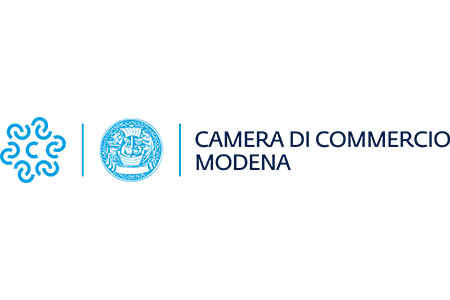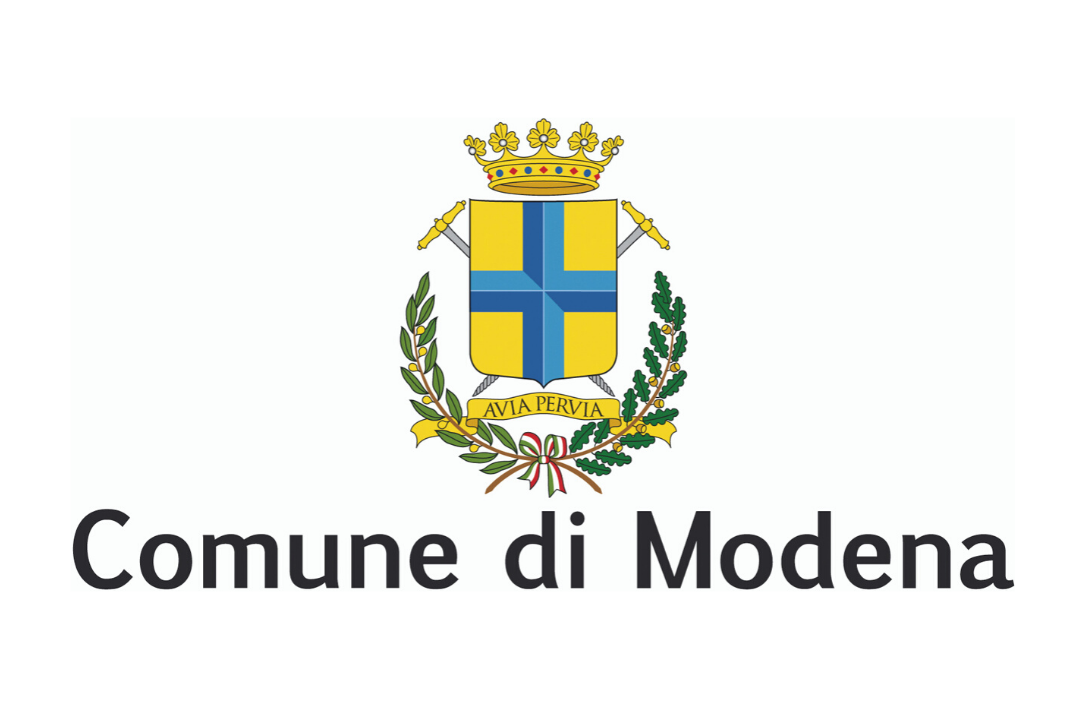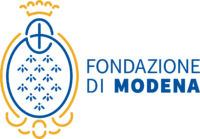Employment in the Era of AI and Digital Platforms: Understanding and Regulating Transitions
On the twenty-third anniversary of the death of Professor Marco Biagi, the Foundation and the University of Modena and Reggio Emilia are commemorating the man and the labour law scholar by organizing an international conference on “Employment in the Era of AI and Digital Platforms: Understanding and Regulating Transitions”.
The two-day event will bring together distinguished scholars from around the world to exchange ideas in interdisciplinary and comparative perspectives on the transformative impact of AI and digital labour platforms on employment, observing ongoing processes of change and exploring innovative practices to address current and future challenges in the digital workplace.
By discussing core issues such as the occupational implications of the human-machine interplay, the digitalisation of HRM through AI, the role and implication on industrial labour relations, the intersection of AI with labour and human rights, as well as the potential advancements or drawbacks favoured by the use of AI in the workplace, the conference aims to foster a deeper understanding of how AI shapes the workplace and provide strategies for navigating its complexities.
Wednesday, 19th March 2025
2.00-2.30 pm Registration of Attendees
2.30-2.45 pm Welcome Addresses
Carlo Adolfo Porro, Rector of the University of Modena and Reggio Emilia
Ludovica Carla Ferrari, Regional Councilor of Emilia-Romagna
Massimo Mezzetti, Mayor of Modena
Fabio Braglia, President of the Province of Modena
Tommaso Fabbri, Vice-president of the Marco Biagi Foundation’s Scientific Committee and Dean of the Marco Biagi Department of Economics, University of Modena and Reggio Emilia
2.45 pm – 4.15 pm Plenary
Introduction & Chair: Edoardo Ales, “Parthenope” University of Naples (Italy); Marco Biagi Foundation (Italy)
AI in the workplace and digital platforms: opportunities, risks and legal challenges
Bernd Waas, Goethe-Universität Frankfurt (Germany)
Artificial intelligence, Digitalization and the Future of Work
Chiara Strozzi, University of Modena and Reggio Emilia (Italy)
Navigating the Digital Age: Insights, Contributions and Challenges from a Sociology of Work Perspective
Matteo Rinaldini, University of Modena and Reggio Emilia (Italy)
4.30 pm – 6.00 pm Parallel Sessions
Moderator: Ralf Rogowski, University of Warwick (United Kingdom)
Algorithmic management at the workplace with Chinese Characteristic – a scenario-based regulation
Piotr Grzebyk, University of Warsaw (Poland)
HRM in the era of AI – are humans still needed?
Kinga Moras-Olaś, Krakow University of Economics (Poland); Justyna Czerniak-Swędzioł, Jagiellonian University (Poland), Supreme Court of Poland (Poland)
Measuring the reach and effects of AI across the workforce: some methodological considerations
John Geary, University College Dublin (Ireland)
Eclecticism and unrealistic perspectives in the advancement of management theories facing the contingent organizational problems
Massimo Bianchi, University of Bologna (Italy)
Moderator: Tindara Addabbo, University of Modena and Reggio Emilia (Italy); Marco Biagi Foundation (Italy)
Innovative approaches: using AI to mitigate workplace violence
Ceren Kasim, University of Hildesheim (Germany)
The Use of Artificial Intelligence (AI) in Migrant-related Employment Policy: Impacts, Opportunities and Challenges
Izabela Florczak, University of Lodz (Poland)
AI in a plural workforce: opportunities and constraints in harnessing technology to accommodate diversity
Federica Palmirotta, University of Modena and Reggio Emilia (Italy); Marco Biagi Foundation (Italy)
Artificial Intelligence in the Workplace: Advancing or Hindering Diversity, Equity, and Inclusion?
Ana Clara Passos Presciliano, Federal University of Minas Gerais (Brazil)
From Algorithms to Narratives: The Objectivity of AI in Recruitment and a Discourse-Based Alternative
Francesca Nannetti, University of Modena and Reggio Emilia-Marco Biagi Foundation; Matteo Di Cristofaro, University of Modena and Reggio Emilia (Italy); Anna Chiara Scapolan, University of Modena and Reggio Emilia (Italy)
Chair: Elisabeth Brameshuber, University of Vienna (Austria)
Digitalized cross-border telework: a challenge to workplace democracy
Kübra Dogan Yenisey, Istanbul Bilgi University (Turkey)
Digital tools: friend or foe to worker representation?
Gábor Kártyás, Pázmány Péter Catholic University (Hungary)
Workers’ representatives: gatekeepers to digital surveillance and AI tools at the workplace
Michael Doherty, Maynooth University (Ireland)
Discussant: Luca Ratti, University of Luxembourg (Luxembourg)
Thursday, 20th March 2025
8.30 am Holy Mass in memory of prof. Marco Biagi, at Sant’Agostino church (Piazza Sant’Agostino, 6 – Modena)
9.30 am – 11.00 am Parallel Sessions 2
Moderator: Janice Bellace, The Wharton School, University of Pennsylvania, Philadelphia (USA)
AI and OHS implications: deployers’ liability and human rights approach for the social and competition regulatory dynamics
Maria Giovannone, University of Roma Tre (Italy)
Risks and opportunities of artificial intelligence for employees’ wellbeing. A bibliometric analysis
Filippo Ferrarini, University of Modena and Reggio Emilia (Italy); Simona Leonelli, University of Modena and Reggio Emilia (Italy)
Immersive reality technologies and worker safety
Davide Tardivo, University of Padova (Italy)
Moderator: Frank Hendrickx, KU Leuven (Belgium)
Protecting fundamental labour rights in the digital society: managing technological uncertainties, addressing legal inconsistencies
Stefano Guadagno, University of Milan (Italy)
Reimagining Workers’ Rights in the Digital Era: A Call for New Digital Rights
Marta Otto, University of Warsaw (Poland)
Digitalisation and age management in the EU
Marianna Russo, CNR-IRPPS (Italy), University of Campania Luigi Vanvitelli (Italy)
China’s AI Act and workers’ data privacy
Qingqin Zhang, University of Glasgow (Scotland); Haoyu Wang, University of Bristol (United Kingdom)
Moderator: Rüdiger Krause, Georg-August-Universität Göttingen (Germany)
The struggles of a declining power: How Polish trade unions are negotiating working conditions in the face of AI incursions
Sławomir Adamczyk, NSZZ Solidarność (Poland); Paulina Barańska, NSZZ Solidarność (Poland); Barbara Surdykowska, NSZZ Solidarność (Poland)
“From Potency To Act”: Further Enhancing Collective Dimension in Implementing Algorithmic Management Provisions of the “New” Platform Work Directive
Matteo Avogaro Ramon Llull Univ. (Spain)
Rebalancing the Power: from the Involvement of Social Partners in AI Governance to AI Systems as a Tool for Strengthening Unions
Ilaria Purificato, University of Modena and Reggio Emilia-Marco Biagi Foundation (Italy)
11.15 am – 12.45 pm Parallel Sessions 3
Moderator: Csilla Kollonay-Lehoczky, Central European University (Hungary)
AI and new job opportunities for people with disabilities: a holistic overview
Fabiola Lamberti, University of Roma Tre (Italy)
AI: Challenges and opportunities for employment inclusion of neurodivergent workers
Olga Rymkevich, Marco Biagi Foundation (Italy)
The accessibility of workplaces: new challenges for equal opportunities in the AI era
Massimiliano De Falco, University of Udine (Italy)
Discrimination through algorithm-based decisions in the hiring process
Alexander Stöhr, Philipps-Universität Marburg (Germany)
Moderator: Susan Bisom-Rapp, California Western School of Law (USA)
Artificial Intelligence and Human Resource Management: identifying the key discourses in the scientific literature
Maria Menshikova, Mercatorum University (Italy); Danila Scarozza, Link Campus University (Italy); Isabella Bonacci, Mercatorum University (Italy); Emanuele Gabriel Margherita, Link Campus University (Italy)
Management vs Employees: AI referees the match
Mattia Gasparro, Sapienza University of Rome (Italy)
Employee recruitment and selection: defining the boundaries for the use of AI
Marius Olivier, Nelson Mandela University, North-West University and Stellenbosch Institute for Advanced Study (STIAS) (South Africa), University of Western (Australia)
Challenging the Employer’s Risk Paradigm With Algorithms: The Allocation of Risk in Platform Work
Ernestyna Pachala-Szymczyk Univ. of Warsaw (Poland)
Moderator: Manfred Weiss, J.W. Goethe University of Frankfurt (Germany)
Algorithmic transparency, union information rights and strategic litigation
Riccardo Maraga, University of Roma Tre (Italy)
Regulatory techniques against the opacity of algorithmic management – an analysis focused (mainly) on the Portuguese case
Joana Nunes Vicente, University of Coimbra (Portugal)
The use of algorithms and AI in workplaces: between (bargaining) limits and (representative) opportunities under an Italian union perspective
Francesco Marasco, University of Trento (Italy)
2.15 pm – 3.45 pm Session 4
Moderator: David Mangan, Maynooth University (Ireland)
Challenges and Jurisprudential Developments Regarding AI-Generated Works
Emanuele D’Emilio, University of Foggia (Italy)
Will the defendant please rise. Criminal liability for the breach of worker’s rights caused by the use of AI systems
Kamila Naumowicz, University of Warmia and Mazury (Poland); Joanna Unterschütz, University of Business and Administration (Poland)
The algorithmic agent – licence to discriminate against
Milena da Silva Rouxinol, Portuguese Catholic University (Portugal)
Era of AI: labour law changing for “hybridization” with artificial intelligence
Roberta Caragnano, LUMSA University (Italy)
4.00 pm – 5.30 pm Plenary
Chair: Tiziano Treu, Catholic University of Milan (Italy), Marco Biagi Foundation (Italy)
Report from Moderators
Closing remarks: Alan Neal, University of Warwick (United Kingdom)
The event is realized thanks to the contribution of our institutional partners:




with the support of:

Prof. Tindara Addabbo (University of Modena and Reggio Emilia), Prof. Edoardo Ales (University of Naples Parthenope), Dr. Paolo Borghi (University of Pavia), Prof. Ylenia Curzi (University of Modena and Reggio Emilia), Prof. Tommaso Fabbri (University of Modena and Reggio Emilia), Dr. Ludovica Leone (University of Modena and Reggio Emilia), Prof. Simona Leonelli (University of Modena and Reggio Emilia), Prof. Iacopo Senatori (University of Modena and Reggio Emilia).
Dr Carlotta Serra (Marco Biagi Foundation, Chair), Dr Arianna Di Iorio (Marco Biagi Foundation), Dr Margherita Grillo (Marco Biagi Foundation), Dr. Emanuel Iacovone (Marco Biagi Foundation), Dr Federica Palmirotta (University of Modena and Reggio Emilia-Marco Biagi Foundation), Dr Ilaria Purificato (University of Modena and Reggio Emilia-Marco Biagi Foundation), Dr Olga Rymkevich (Marco Biagi Foundation).
Prof. Marina Orlandi Biagi (Marco Biagi Foundation, Chair), Prof. Tindara Addabbo (University of Modena and Reggio Emilia), Prof. Edoardo Ales (University of Naples Parthenope), Prof. Francesco Basenghi (University of Modena and Reggio Emilia), Prof. Janice Bellace (The Wharton School, Philadelphia), Prof. Susan Bisom-Rapp (California Western School of Law), Prof. Ylenia Curzi (University of Modena and Reggio Emilia), Prof. Tommaso Fabbri (University of Modena and Reggio Emilia), Prof. Luigi E. Golzio (University of Modena and Reggio Emilia), Prof. Frank Hendrickx (University of Leuven, Belgium), Prof. Csilla Kollonay-Lehoczky (Central European University, Budapest), Prof. Alan Neal (University of Warwick), Prof. Roberto Pinardi (University of Modena and Reggio Emilia), Prof. Ralf Rogowski (University of Warwick), Prof. Riccardo Salomone (University of Trento), Prof. Iacopo Senatori (University of Modena and Reggio Emilia), Prof. Yasuo Suwa (Hosei University), Prof. Tiziano Treu (Catholic University of Milan), Prof. Manfred Weiss (J.W. Goethe University, Frankfurt-am-Main).
